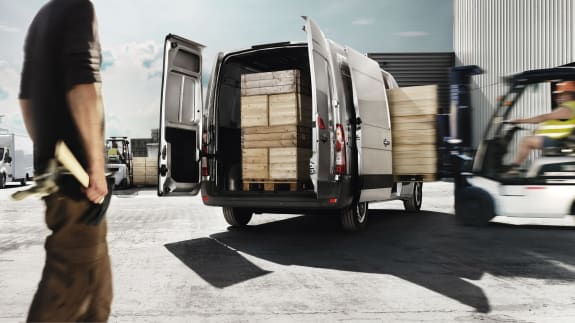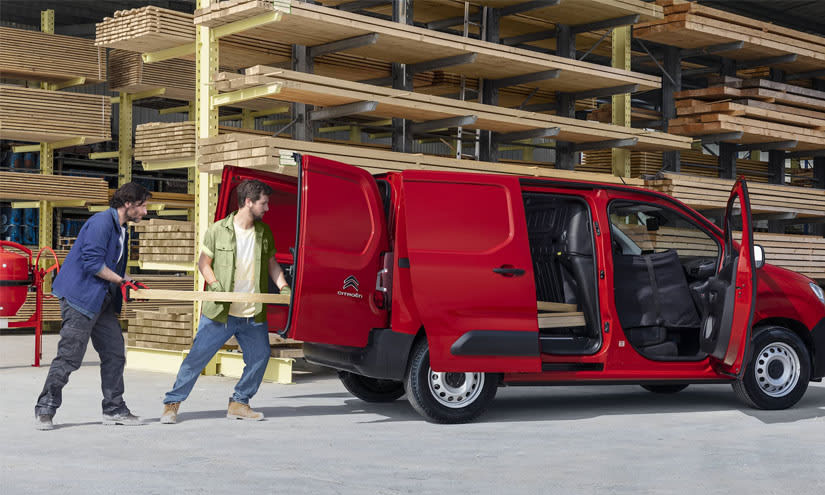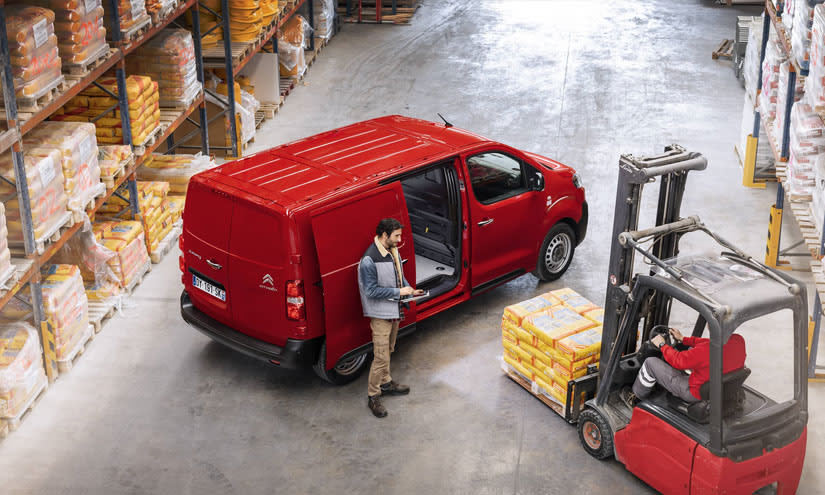Van & Pickup Special Offers
Browse our special offers on vans, pickups and commercial vehicles

A van’s ‘payload’ is the maximum weight the van is legally allowed to carry, and includes all contributing factors including the weight of the van, a full tank of fuel, the driver, passengers, equipment, supplies and any racking etc.
It's really worth taking the time to work out what payload you need. Choose a van with a payload bigger than you need and you’ll be driving a too-large van, which means increased difficulty in parking as well as higher fuel costs. On the other hand, choose a van with too small a payload and you’ll be tempted to overload it, which can cause damage to the van, pose safety threats (because of delayed abilities to stop etc.) and potentially result in fines and loss of income if you’re caught.
Payload is something the authorities take seriously, and both the Driver and Vehicle Standards Agency (DVSA) and the Police regularly perform payload spot checks. If you’re found to be over your legal payload, you can be prevented on-the-spot from continuing your journey and fined - not something you or your business wants!
Thankfully, all of this is avoidable if you accurately calculate the weight you’re likely to carry and don’t take risks by exceeding your van’s limit. Once on the road, it’s also a really good idea to periodically visit a weighbridge to have your van load weighed.
It's also worth mentioning that each van axle has a maximum weight that it can bear, and that your load needs to be correctly distributed across the front and rear axles. Again, if you’re found exceeding the weight limit of the front or rear axles, you can be fined and/or receive a court summons, so it’s important to keep an eye on this as well.
Penalties for exceeding your van's payload differ, depending on how much you’ve exceeded it by. Currently the fines are:
• 5% to 10% over the limit = £100 fine
• 10% to 15% over the limit = £200 fine
• 15% to 30% over the limit = £300 fine
• Over 30% over the limit = court summons
To accurately understand your van payload requirements, you’ll need to calculate what you’ll be carrying on an average day, plus take into account any other additional weight you carry - even if it's only every now and again. When doing this, make sure you take the time to do the proper maths and don't just estimate, because you could be way-off from what your actual load weight really is.
Keep in mind, that if you only occasionally carry that extra heavy load, it might be better to hire a trailer or other transport option for those occasions, rather than get a van that’s too big for your everyday needs. Most vans can be fitted with a tow bar for this purpose, but do check before you commit.
1
If you have a van in mind, your first step is to find out it’s ‘un-laden’ or ‘kerb weight’ – i.e. the weight of the van when it is un-laden (including no driver or passengers) but fully fuelled. This can be found by looking at the manufacturer’s website.
2
Next, find out the van’s maximum payload or ‘gross vehicle weight’ (GVW). This is the maximum weight the van is allowed to weigh when fully loaded and includes the weight of the van, the driver, passengers, fuel, load and any additional fixtures and fittings such as racking.
The payload or GVW of every van can be found on our website, simply find the van you’re interested in and look under the ‘van information’ area. Alternatively, this figure can be found on the van’s vehicle identification number (VIN) plate.
3
Subtract the van’s ‘un-laden weight’ (or ‘kerb weight’) from the van’s payload (or GVW). This will give you the additional weight you will legally be allowed to carry in and on the van (this additional weight will consist of the driver, any passengers, fuel, load and any additional fixtures and fittings such as racking).


4
Next, understand the typical weight you will add into and onto the van by calculating and adding together all of the following:
• The weight of the standard equipment and tools you will carry
• The weight of typical supplies for a job you will carry
• The weight of the max. number of passengers you will carry (including any luggage)
5
Subtract the weight you will add to the van (i.e. the figure you arrived at at the end of Step 4) from the previous figure (i.e. the figure you arrived at having subtracted the vehicles’ ‘un-laden weight’ from the GVW at the end of Step 3). This will give you the total weight of the van fully laden, including everything you will need to transport on a daily basis (inc. passengers).
6
Finally, compare this figure (from Step 5) with the payload (or GVW) of the van you’re looking at, to understand whether it will meet your weight needs.
If the total weight (i.e. the van + fuel + passengers + equipment + supplies + racking etc.) exceeds the ‘gross vehicle weight’ (GVW) of the van, you’ll need to consider a different van.
The number of people you carry affects not only the payload but also the style of van and seating configuration.
Most vans carry 3 people in the front row as standard, whilst others are designed to carry larger teams of two to three rows of passengers.
If it’ll only ever be you, your equipment and supplies, then you won’t need an extra row of seating (unless you plan to use your van for private use to transport family and friends).
However, if the number of passengers carried will vary, then it might be worth considering a crew-cab or double cab.
If your primary purpose is to transport people, with little equipment or supplies being carried, then you’ll need a vehicle specifically designed for this purpose, for example a mini-bus or people-mover.
When thinking about passengers, an important consideration should also be comfort, and blog reviews are often a good resource for this, as is experiencing the van for yourself by taking it for a test drive.
Now you've got a better idea of what to look out for in terms of payload & passengers, why not explore more of our guides on How To Choose The Right Van.
Alternatively, simply get in touch with one of our specialist van leasing consultants on 01656 337337 or contact us at enquiries@selectcarleasing.co.uk
Select Van Leasing are one of the UK's largest independent specialists for van and car leasing. Whether you are looking for more information on leasing, electric vehicles or looking for special offers - here's some links to help you get to the right place!